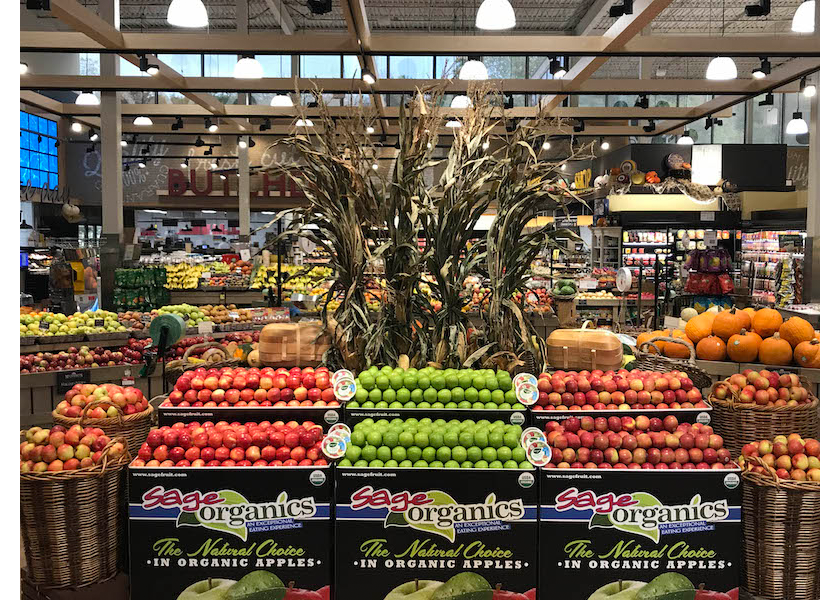Northwest organic tree fruit set to increase for Sage Fruit Co.

Excellent growing conditions are on tap for Northwest fruit, and that means organic fruit volume will increase later this year for Yakima, Wash.-based Sage Fruit Co., says Chuck Sinks, president of sales and marketing.
“During the summer, we anticipate an increase in our dark sweet organic cherry production,” Sinks said. “We are looking forward to an excellent cherry season after experiencing a down year in 2022, and six months from now we’ll be in the peak of new crop apples and pears."
Sage Fruit Co. organic fruit is grown throughout eastern Washington, from the southeastern region through the Yakima Valley and Chelan, up to Okanogan, he said. The company's organic packing facilities are in Chelan and Yakima.
The marketer offers a variety of organic apples and pears year-round and organic dark sweet cherries during the summer months.
“While we do continue to expand our overall organic program, our remaining apple and pear crop will see a slight reduction in volume after unprecedented high temperatures last summer,” Sinks said. “However, we are looking forward to increased volumes in all of our organic commodities (cherries, apples, pears) during the 2023 crop. We have experienced excellent growing conditions so far this year.”
During the organic apple season, Sinks said Sage Fruit Co. saw a significant increase in its volume of organic Cosmic Crisp apples. In addition, 2023 was the first season for Sage Fruit Co. providing retailers and consumers with organic SugarBee apples, he said.
Destination apples
Creating an apple destination within the produce department is the best way to promote apples at the grocery store, Sinks said.
That means allowing consumers to see their options, but also providing them with information such as how to select and store, flavor profile, where they’re grown and how best to use them, he said.
“When promoting organic items such as apples or pears, retailers should also take into consideration that the displays should be clearly marked with organic signage,” he said. “The loyal organic customer will be seeking those items and shop the entire store for organics, not just the produce department. The casual organic shopper may see an organic variety on sale and decide to make that purchase for the day.”
In-store display contests work well when trying to boost volume in apple/pear sales, he added.
“The best way to merchandise apples is to not only build an eye-catching display highlighting all of the different varieties but to also make sure they are refrigerated,” Sinks said. Unrefrigerated apples begin to show moisture loss and can be less appealing to consumers.
Organic optimism
Sinks said he has a bright outlook for the future of organic produce.
“Organic demand remains high and should continue to do so,” he said. “Roughly 52% of organic consumers are millennials, and they account for 30% of the U.S. population.”
What’s more, the majority of millennials who are purchasing organic items are also parents, he said.
“Our organic program will continue to grow over the next several years to meet demand,” Sinks said. “Not only are we planting new acreage of organic orchards, but we are actively transitioning many of our conventional orchards."
Sinks said the organic offerings are more widely available now, which means the price gap has closed a bit.
“This is appealing and should be highlighted for new potential customers,” Sinks said.
Current organic shoppers are typically loyal to the category and shop organic across the store, not just in produce, he said.
“With more organic items available, they will likely be looking for additional ways to lead a healthier, more sustainable lifestyle — for example, they will put an emphasis on purchasing sustainably packaged produce,” he said.
Typical loyal organic shoppers typically check a number of boxes, Sinks said:
- Put a high value on quality.
- Very health-conscious.
- Is not price sensitive.
- Millennials and Gen X.
- Have families or are pregnant.
- Make more than $100,000 a year.
- More likely to have a college degree.







